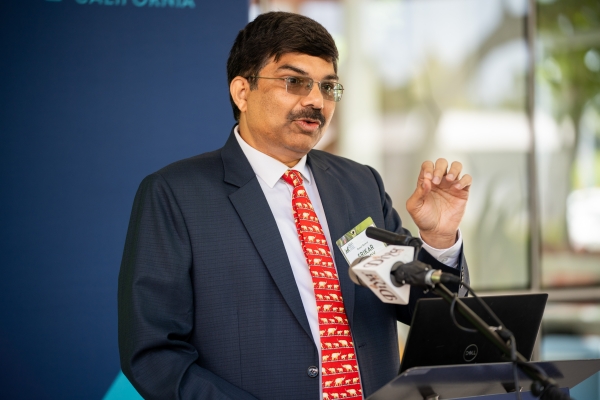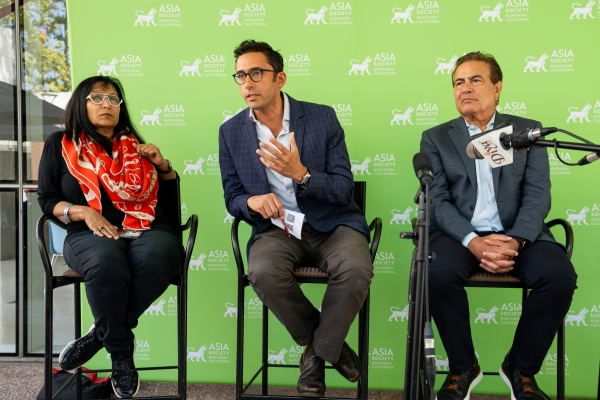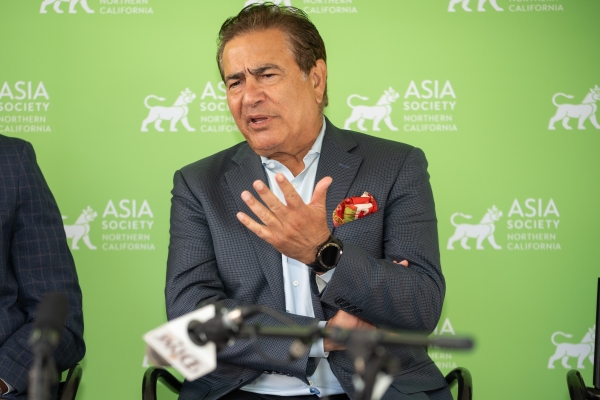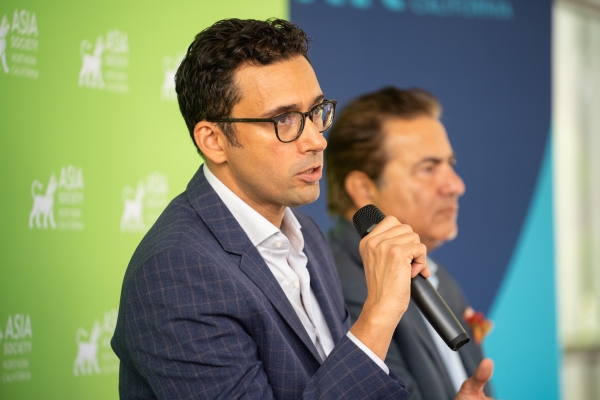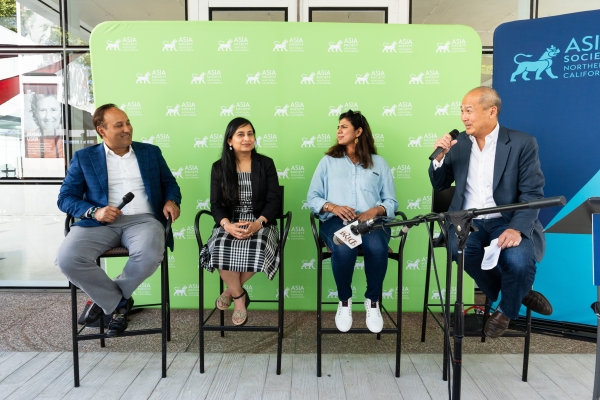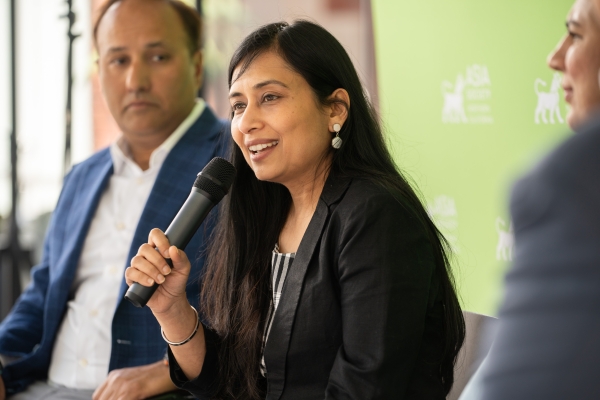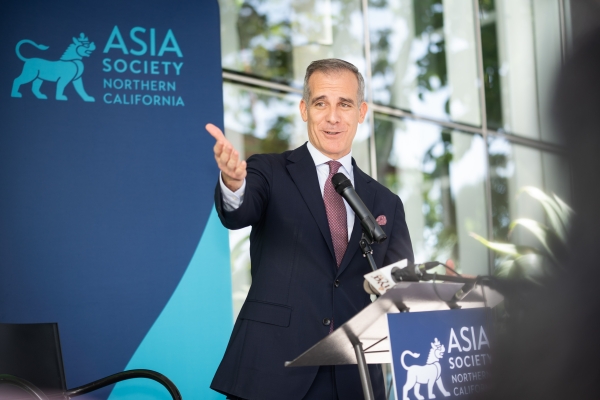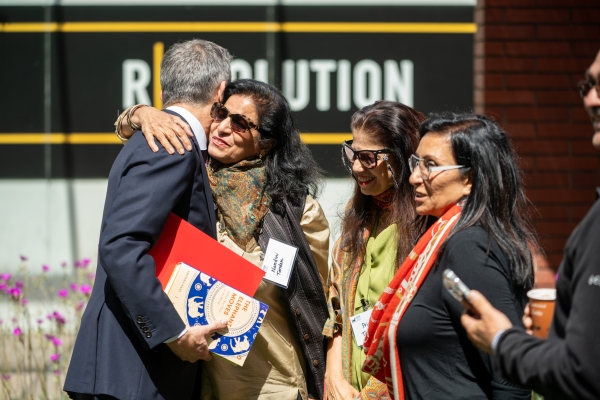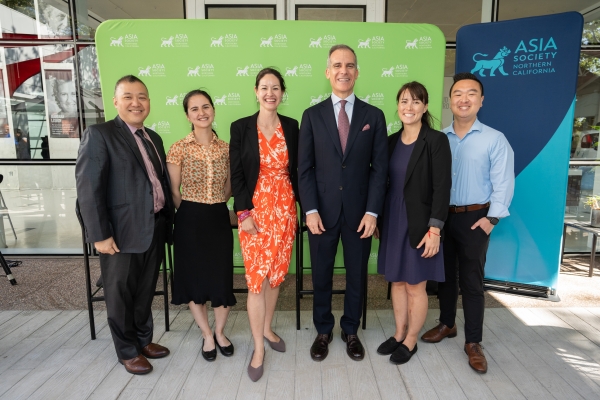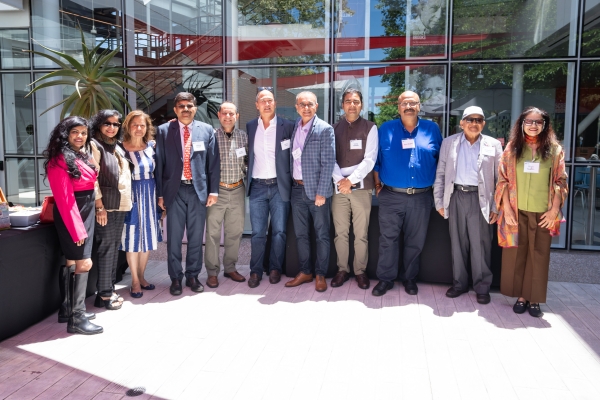Event Recap: Envision India 2024
On June 6, Asia Society Northern California hosted the Envision India Conference 2024 at the Computer History Museum in Mountain View. The half-day conference analyzed and envisioned the critical role of India in a rapidly changing world.
The event opened with remarks from Consul General K. Srikar Reddy, the Consul General of India at San Francisco. This was followed by a panel on “The Emerging U.S. & India Partnership,” which featured Mukesh Aghi of USIPSF, Arzan Tarapore of Stanford University, and was moderated by venture capitalist Asha Jadeja.
The second panel, “U.S.-India Tech & A.I. Investment Amidst a Tech Revolution,” included speakers Sumir Chadha of WestBridge Capital, Aanchal Gupta of Microsoft, Madhu Shalini of Rocketship.vc, and was moderated by Andy Tsao of Silicon Valley Bank.
The final session featured a keynote address by Ambassador Eric Garcetti, the 26th U.S. Ambassador to the Republic of India. He offered on-the-ground insights from the 2024 India elections and offered projections for the trajectory of India’s rise on the global stage.
View more photos from the conference here. Stay tuned for the release of videos!
Event Recaps -
Keynote Address by Ambassador Eric Garcetti, 26th U.S. Ambassador to India
Thursday, June 6, 2024 – Asia Society Northern California hosted the Envision India Conference 2024. The conference featured keynote remarks from Ambassador Eric Garcetti, the 26th U.S. Ambassador to the Republic of India. Ambassador Garcetti examined the emerging diplomatic partnership between the United States and India, drawing attention to the complexities of the relationship and its implications for social progress, economic development, and technological innovation.
He spoke about topics including the recent general election in India and equitable change. Around 60% of eligible voters across large cities and rural villages exercised their right to vote, constituting an electorate of over 640 million. He also shared ideas on initiatives for partnership, including previous collaborations on technological achievements such as the Green Revolution and future goals which will define standards for artificial intelligence.
Ambassador Garcetti answered attendees’ questions on fields such as the current state of Indian investment within the United States, the significance of expanding manufacturing and bilateral trade, and co-participation in climate action against pollution.
The ‘Rise’ of India & Reflections on India's 2024 Elections by Consul General K. Srikar Reddy, Consul General of India at San Francisco
Consul General Reddy started his remarks by recapping the process and outcome of India’s recent election - the world’s largest exercise of democracy. The election this year had seven phases, and 642 million voters cast their votes. The election process was facilitated by millions of polling stations, 135 special trains, and 68 thousand monitoring teams. These data points attest to the strength of India’s democracy.
The Consul General then looked ahead to India’s long-term economic development goals. President Modi plans to make India a developed country and the world’s third-largest economy by 2047. India’s economy has grown at a rate of 7-8% in the years after the pandemic, which is double the global average. This growth is projected to continue in the upcoming years, boosting India’s GDP to $32 trillion by 2047. Important measures that will contribute to India’s growth include greater inclusion of women in India’s politics and the strengthening of India’s manufacturing. India also actively participates in the global economy, pursuing collaboration in the Quad and with ASEAN. The Consul General concluded by stating that India will remain open to investments and actively seek international collaborations to build up its capacity.
The Emerging U.S. & India Partnership
Speakers included Mukesh Aghi, President and Chief Executive Officer of the U.S.-India Strategic Partnership Forum (USISPF), and Arzan Tarapore, Research Scholar at the Center for International Security and Cooperation (CISAC) at Stanford University. This panel was moderated by Asha Jadeja Motwani, Silicon Valley-based venture capitalist and philanthropist.
Aghi opened the discussion by introducing the four dimensions of the U.S.-India partnership—geopolitical, economic, technological, and people-to-people. Against the backdrop of China’s increasingly aggressive stance, the U.S. is closely collaborating with India to de-risk its supply chain and boost both countries’ technological development. Indian Americans are also greatly contributing to the U.S.’ economic growth. Motwani commented on how the U.S. and India are moving away from the “China Plus One” dynamic toward a deepened partnership based on shared values of democracy.
Tarapore then discussed the current state of India’s strategic defense. He emphasizes=d that the four dimensions Aghi spoke about are interconnected. In recent years, iCET (U.S.-India Initiative on Critical and Emerging Technology) has created the policy framework for the tech and innovation sectors of the U.S. and India to collaborate. For iCET to be even more effective, the public and private sectors in both countries should also be more closely aligned.
On the topic of the private sector’s involvement in the U.S.-India partnership, Motwani asked whether the private sector is adequately synergistic with the U.S.-India defense agenda, and if venture capitalism can play a role in geopolitics. Tarapore responded that, while startups in the U.S. and India are increasingly motivated to focus on national security issues, both countries are still striving to devise policy settings that can facilitate innovation and the exchange of ideas. Specifically, start-ups should understand what they should do, because direction and understanding of the priority are vital to the defense sector, a mindset that differs from startup culture’s pursuit of disruption. Aghi further commented that VC will be critical for the defense sector. Tens of Indian startups are already actively engaging with the U.S. Department of Defense, providing cost-effective solutions for defense. Most of the investment for Indian startups comes from the U.S., and this trend will also extend to the defense sector.
In light of India’s recent election, the panelists also discussed the election’s impact on India’s economic development. In response to Motwani’s question of whether the coalition government is stable enough to encourage continued foreign investment in India, Aghi assured the audience that the government understands the importance of foreign direct investment for India, which is only possible if the coalition government maintains its political stability. Concerning India’s economic development as in the broader landscape of the Indo-Pacific region, Tarapore discussed the stability of the Quad, which India is a part of along with the U.S., Japan, and Australia. The Quad’s new initiative, the Quad Investment Network, brings capital to regions where it might make a difference. Without the capacity to direct where investment is going, the Quad needs to recognize that it is “not China” and should therefore recognize its unique strengths.
U.S.-India Tech & A.I. Investment Amidst a Tech Revolution
Speakers included Sumir Chadha, Co-Founder and Managing Director at WestBridge Capital Partners; Aanchal Gupta, Corporate Vice President at Microsoft; and Madhu Shalini, Managing Partner at Rocketship.vc. This panel is moderated by Andy Tsao, Head of Global Gateway at Silicon Valley Bank.
The panelists started by discussing the role AI plays in investment in India. Chadha said that most startups in India have recognized the essential role and huge potential of AI. Gupta commented that India will play a huge role in the application and usage of AI, from healthcare to customer service. Shalini added that India is well-positioned to generate its unique data, which the country can apply to its own LLM models. The panelists expect that, in an age when both attackers and defenders in cyberspace are using AI, investment in cybersecurity startups will gain popularity in India.
Giving suggestions to aspiring founders, the panelists advised that founders use capital wisely and thoughtfully. Chadha recognized the grit of Indian founders and says that the best founders are culturally adaptive and capable of quickly learning how to work in the U.S. business environment. Shalini brought up the essential mentality of cost efficiency: the ability to solve problems effectively and at a relatively low cost. Gupta added that, with tremendous potential for growth, Indian founders need to be always ready to pivot to the new technology around them, especially in this current AI wave.
The panelists then discussed what contributes to India’s current success in tech innovation. Chadha cited the maturation of laws that allow for venture capital to thrive and the growing ambition and self-confidence of Indian founders. Gupta also applauded the strong atmosphere of learning and problem-solving in India. She said that companies like Microsoft and Google are investing in India to help founders scale their businesses. Shalini pointed to the great potential of the India Stack, which provides powerful tools for online transactions and ID verification.
The panelists also identified some of the expected roadblocks in India’s tech innovation. Shalini emphasized the huge importance of capital for innovation, commenting that India’s VCs need to have long-term views of things and provide founders with patient capital. Gupta added that there is still a need to focus on cybersecurity and that all sectors should be wary of threat factors. The panelists also called for Indian institutions to exercise greater leadership. They suggested a need for innovative leadership in India’s educational institutions, and not just mentorship of promising students.
